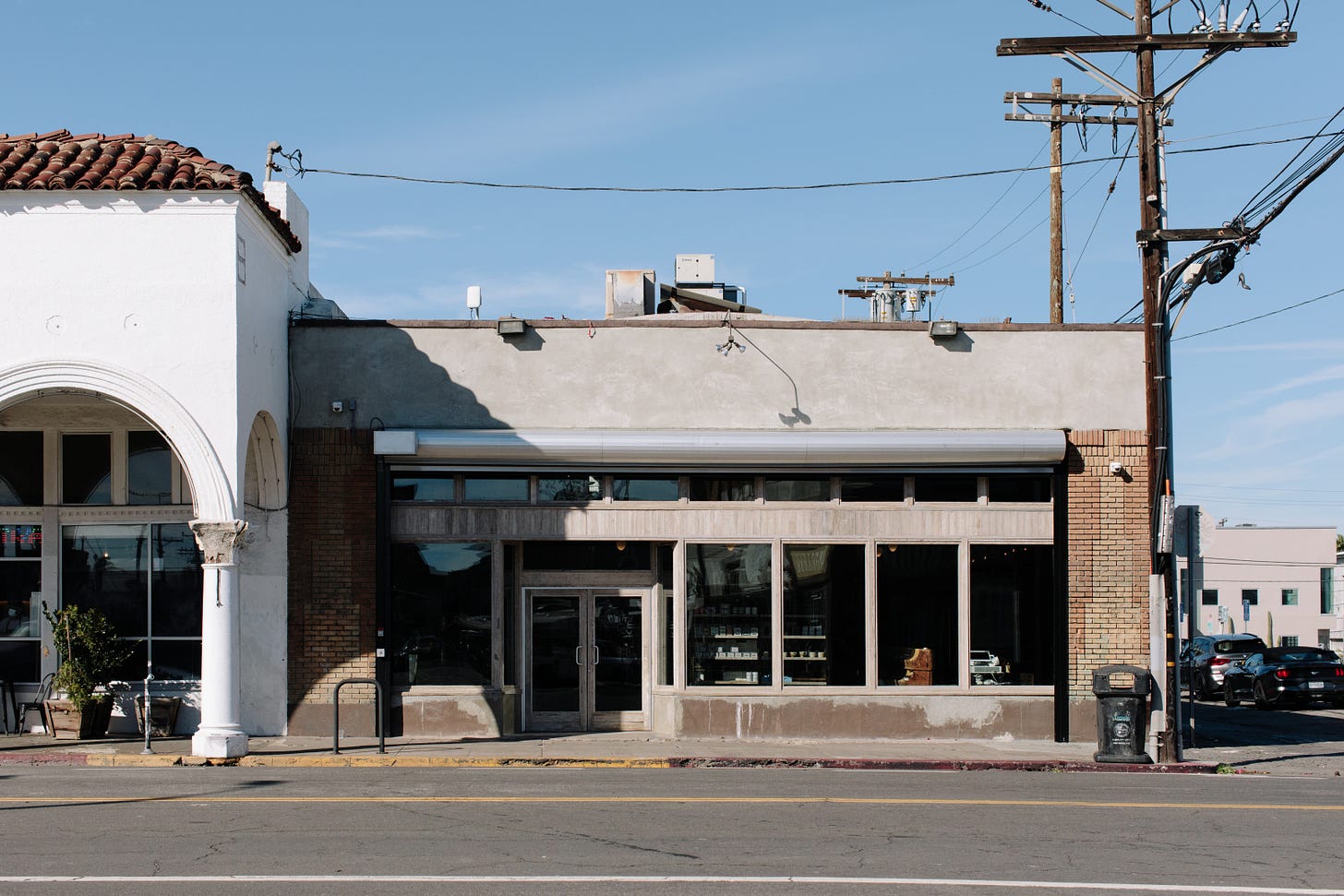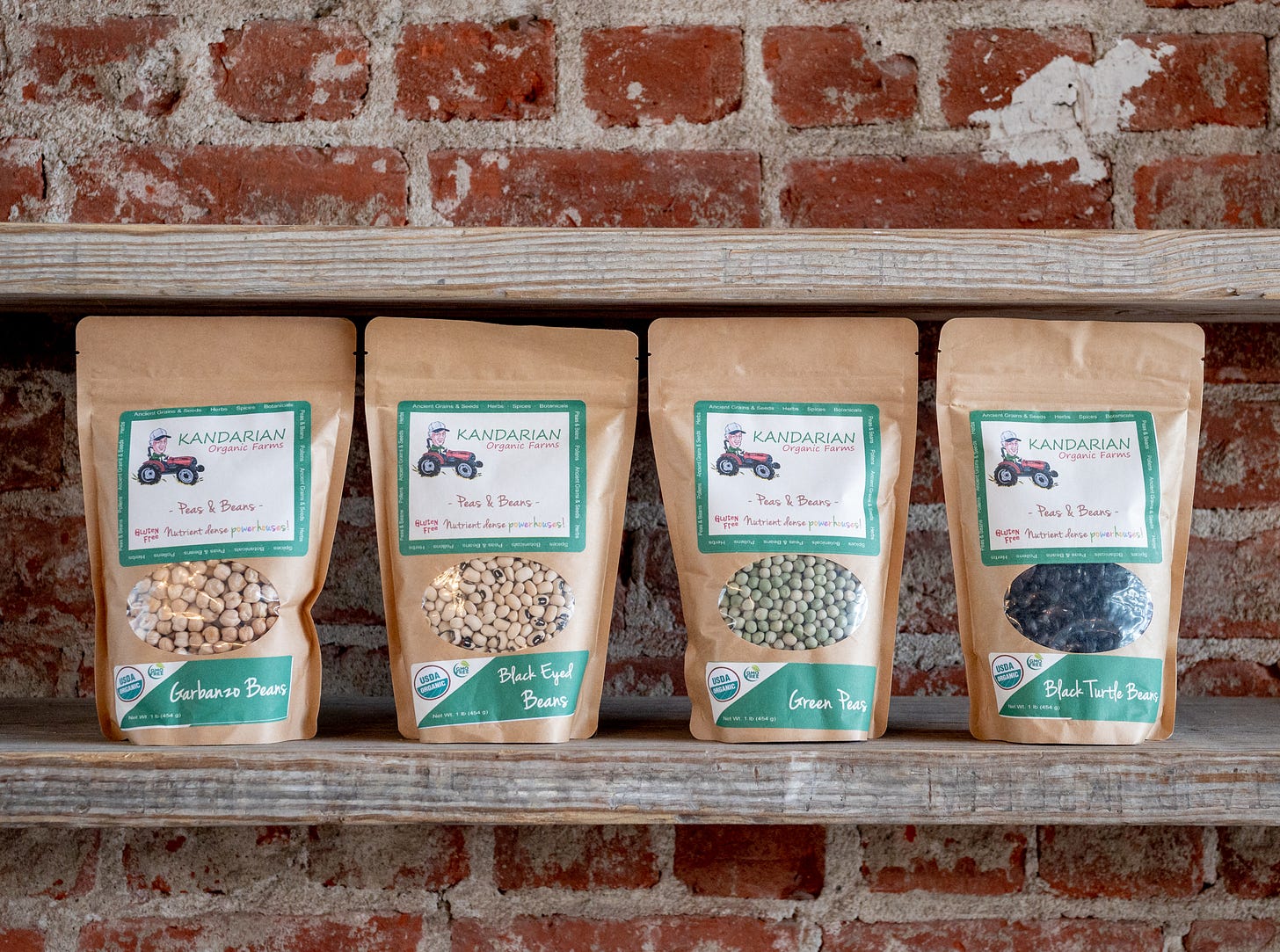A Look into Gjusta Grocer
Coming soon...
By Nina Subhas
Gjusta Grocer is nearly ready to welcome guests. I started working on this piece from inside the store, alone on a Saturday evening. I took advantage of this rare moment of quiet to reflect on our vision for the space and what we hope to achieve.
At the Gjelina Group, purchasing directly from farmers is fundamental to how we do business. We purchase more directly from farmers in dollars, than any restaurant group of our size, and we take that responsibility seriously. Knowing how our farmers treat their employees, how they care for their land, and how they use their water is all a part of what we have done in our restaurants.

We are working hard on extending that transparency to all our purchasing, and selecting products for the Grocer has been an incredible opportunity for me to talk to growers, makers and mongers about who in the world is making exceptional things and doing the right things by their land and their communities. I am so excited to support them with dollars, and to share their stories.
The first company I knew I wanted to work with when I joined this project was Maine Grains. Maine has a rich agricultural history, and at its height in 1837, Somerset County (now the home of Maine Grains) was producing 239,000 bushels of wheat a year, enough to feed 100,000 people. In the late 1940s the grain industry in New England declined really steeply. Wheat farming moved westward to large industrial farms and the small farms and local mills shut down. Not only was this a big loss for rural economies in Maine, but it also meant a loss of biodiversity. Maine Grains began in 2007 as a community movement in Skowhegan to bring grain growers, millers, bakers, and wood oven builders together to bring back their local grain economy. When the County Jail relocated and the old jailhouse came up for sale Amber Lambke and Michael Scholz bought the building and transformed it into a mill. By 2019 they had purchased over $1,000,000 of Maine grown grain, and milled it into some of the most delicious fresh milled flour I have had the pleasure of baking with.

Closer to us, northwest of Sacramento in the Capay Valley is Seka Hills, owned and operated by the Yocha Dehe Wintun Nation. Seka Hills has 24,000 acres in production, they have a diverse and expanding agricultural program as well as 700 heads of cattle following a sustainable grazing program.
The Yocha Dehe tribe has been living in this region for thousands of years, and are dedicated to honoring the legacy of their ancestors by protecting and preserving the natural balance of their environment. Before I knew their story, I tasted their olive oil and it was easily my favorite California olive oil. My pantry is not complete without lots of olive oils. I need something grassy, something peppery, something neutral to cook with, and am always looking for something new to try. Seka Hills has 4 single varietal olive oils, and a blend — they are all in my heavy rotation.
I have tasted so many things in preparation for the store opening, some of the most exciting things have been completely unexpected and new to me. Farmers and makers have been an invaluable resource for introducing me to new things and teaching me how to use them.
I hope that Gjusta Grocer can be that for our guests and community. Larry Kandarian of Kandarian Organic Farms embodies that spirit. He sells grains, beans, pollens, and tea, but the real treat from his stand is the conversation. He has recipe cards for just about everything and is so full of joy when he talks about food it's impossible not to be inspired.
I have so many hopes, and goals for Gjusta Grocer. It has been my privilege to watch the team bring it all together. This snapshot is a little fraction of what we have to share when we open our doors. I can’t wait to share it with you.










Excited for this expansion and opportunities for our Venice community!
Love it! Can’t wait. Would love to connect and discuss collaborative opportunities.